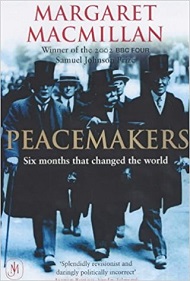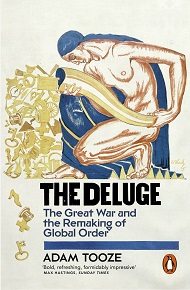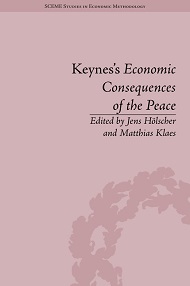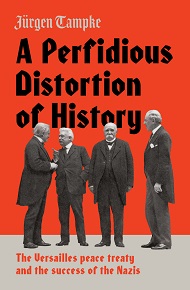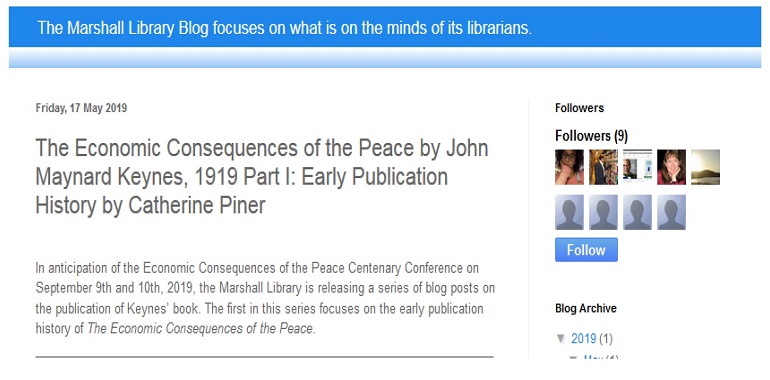The Economic Consequences of the Peace by John Maynard Keynes, 1919
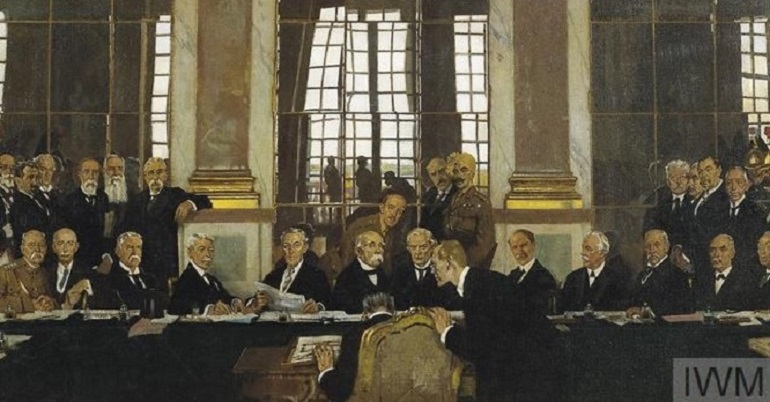
The signing of the Peace Treaty in the Hall of Mirrors, 28th June, 1919 by William Orpen © IWM (Art.IWM ART 2856)
In May 1919 John Maynard Keynes walked out of the Paris Peace Conference at Versailles in despair. He had been working there in his capacity as H.M. Treasury adviser to the British Government. He had hoped that the treaty would establish conditions for economic recovery in Europe instead the heads of the 'Big Four' nations were concerned with borders, national security and extracting large reparations from Germany. He was very critical of the statesmen negotiating the treaty, saying they gave "politics precedence over economics."
On his return home, having resigned his Treasury post, Keynes embarked on writing this book, which sets out the arguments he had tried and failed to communicate during the Peace Conference. The book is written in a more passionate and engaging style than was usual in his economics writings, due to the huge amount of frustration he still felt. He believed the consequences of the treaty to be a catastrophe and argued that it was a "Carthaginian Peace", that is to say a peace that has the intention of crushing the opposing side. He also wrote detailed pen portraits of the main protagonists which were less than flattering. The sketches of Wilson, Lloyd George and Clemenceau were edited but they still contributed to the popularity of the book. The longer critical pen portraits appeared later in Essays in Biography 1937.
The book was a best seller. Keynes wrote to Lytton Strachey, 23 December 1919, "The book is being smothered in a deluge of approval ..." By the 21st January, 1920 English sales had reached 7,700 copies and a third reprint was ordered. A cheap edition, 2s 6d per copy, appeared in February in a print run of 10,000. By 9th February 12,300 copies of 16,000 copies had sold. By the 22nd April, 1920 18,500 copies had been sold in the UK, 70,000 copies in the US and by August world sales were over 100,000 (Skidelsky, 1983). The book became very influential and in the UK his analysis that the brutal treaty was a "Carthaginian Peace" became general public opinion and his view became an orthodoxy in academic circles. This led to a wide belief, especially in the UK and the USA, that the treaty was unfair.
The full text of The Economic Consequences of the Peace, 1919 is available online via The Library of Economics and Liberty.
Keynes' annotated Macmillan proof copy is preserved in the Marshall Library and has been digitized and made available via the Cambridge University Digital Library.
In 1920 Keynes produced an abbreviated version of The Economic Consequences of the Peace for the populist American 'Everybody's Magazine' entitled 'The Peace of Versailles'.
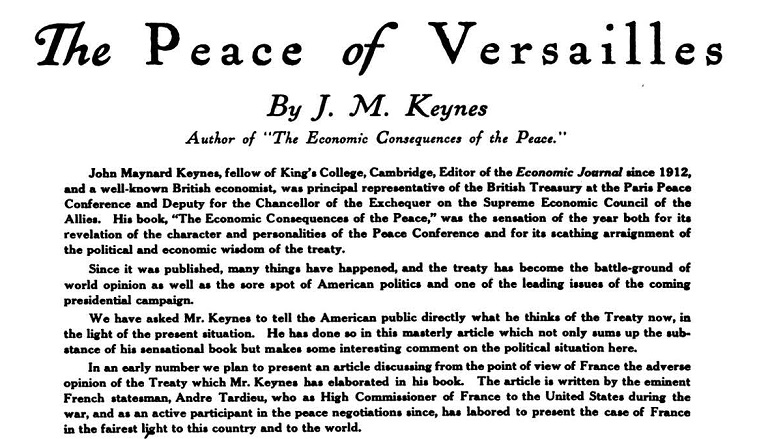
Keynes, J.M. (1920) The Peace of Versailles by J.M. Keynes, Author of "The Economic Consequences of The Peace" in Everybody's Magazine, September, pp. 36-41 (Available online)
In 1921 André Tardieu, Clemenceau's lieutentant at the Peace Conference, published 'The Truth About the Treaty' which sought to justify the Treaty and counter the criticisms levelled at it by Keynes. A letter from Charles Waldstein to Keynes was found within the pages of the Marshall Library's copy of this book in which he declared Tardieu to be '... such a swine' and encouraged Keynes to respond to him ... "I admit that to read his book is to make more black blood than any other book published on this loathsome subject". Later in 1920 Tardieu also published a response to Keynes' Economic Consequences of the Peace in Everybody's Magazine. Keynes was sufficiently annoyed by this to write to the editor directly to express his irritation on 22nd October, 1920. "M. Tardieu sets the note of this reply, in your November number, to my criticism of the Treaty of Versailles, with a paragraph of personal abuse ...[I] apologise for having been stirred by the insincerity of M. Tardieu's observations into breaking my general rule of not replying to criticism which is purely personal and is irrelevant to the arguments I employ and the policies I advocate".
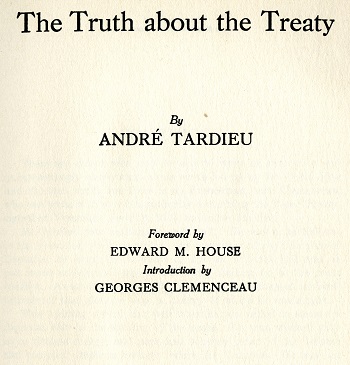 |
|
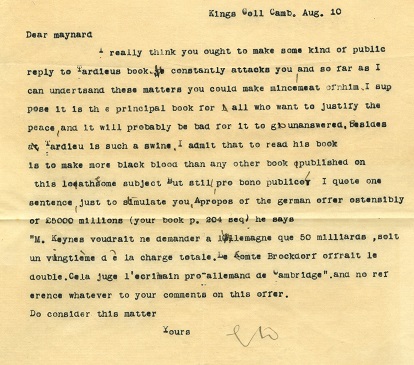 |
|
Tardieu, A. (1921) The Truth About the Treaty by André Tardieu; forward by Edward M. House; introduction by Georges Clemenceau. London : Hodder and Stoughton (Marshall Library classmark : 56 F 30) |
|
Letter from Charles Waldstein to Keynes found in the Marshall Library's copy of Tardieu's book (click on image for larger version) |
Economic Consequences of the Peace Centenary Conference

